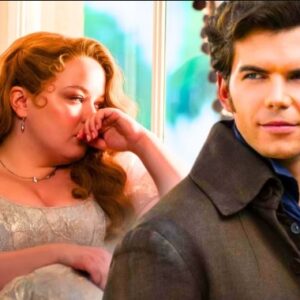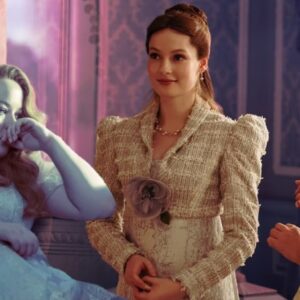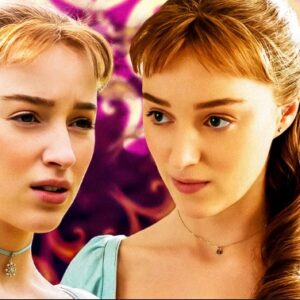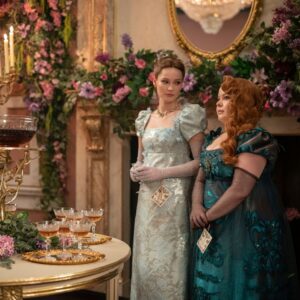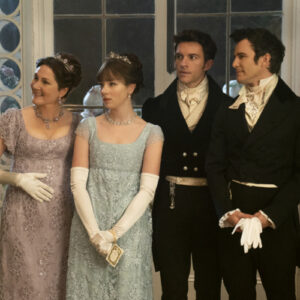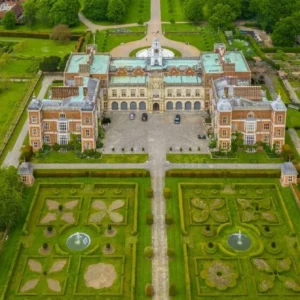Did Lord Tokugawa escape a hostage situation by pretending to be a woman? Plus: more ‘Is this real’ questions, answered.

“Shōgun” is a rare sort of television adaptation. It’s based on a book (which previously inspired an Emmy-winning limited series in 1980) that fictionalizes real history, creating a compelling blend of history, fiction, and fantasy. The thrilling TV tale makes for a fun jumping-off point to get into 17th century Japanese history, and now that we’re at the midpoint of the season, it makes sense to check up on some of the show’s biggest unanswered questions.
Did Lord Tokugawa (the “real” Toronaga) actually escape a hostage situation by pretending to be a woman?
No. But Lord Ishida, the equivalent of Ishido, did! Historically, Ishida and Tokugawa’s beef was every bit as spicy as their counterparts in “Shōgun,” up to and including the assassination attempt at Osaka Castle in 1600 (the attempt was on Tokugawa’s life, however, since William Adams/the “real” Blackthorne wasn’t there.) When the assassination failed, Ishida got out of dodge by dressing in drag and riding in a palanquin — without the benefit of a raving English pilot flopping around like an angry muppet to distract the guards.
Feels awkward to ask now, but… where is the emperor?
The epic scramble for power at the center of “Shōgun” is so engrossing that it’s easy to gloss over the number one question anyone who knows anything about Japan should be asking…
“Wait, doesn’t Japan have an emperor?”
Japan does indeed have an emperor, but by this time in history he was mostly a religious figurehead with no political sway. Though powerless, the emperor still outranked the titles of Taiko and Shōgun and anyone who ruled was technically doing so on his behalf. If an all-powerful leader ruling on behalf of another, different leader sounds like a hat on a hat, it is. It’s also one of the more fascinating side effects of Japan’s unique royal history.
The Japanese imperial line is the longest-running unbroken royal bloodline in the world. Where other countries’ monarchical legacies are rife with usurpers, extinctions, and the occasional selection of unrelated heirs, the Japanese House of Yamato has passed the Chrysanthemum Throne to direct successors since at least 539 AD, though its mythical origins begin with the sun goddess Amiterasu thousands of years earlier.
Those divine origins are exactly why the number one rule of Japanese history is “don’t kill the emperor.” Regardless of which clans warred, who carried the title of Shōgun, and how powerful (or not) the emperor became, killing him was an unfathomable sin. It was deicide, and it doesn’t take a hard sell to get everyone agreed on not killing god.
So where is the emperor in “Shōgun?” Probably hanging out in a castle somewhere, secure in knowing he has the safest job in the world. Literally.

Were cannons that overpowered in 17th century Japan?
From a physical standpoint, yes. Though cannon-like artillery had existed in Japan for over three hundred years by the time of “Shōgun,” cannons like those on Blackthorne’s ship would have been a huge advantage for any army in the year 1600. That said, “Shōgun” is exaggerating their novelty. Cannons like Blackthorne’s had already been used in battle in Japan twenty-five years before his arrival, and guns had been used in warfare since the Portuguese brought them over half a century before.
For what it’s worth, artillery as a metaphor for the destructive qualities of foreigners in Japan is a common trope in media set around this era. Netflix’s excellent “Blue Eye Samurai” has a similar pretense, and that show takes place decades after “Shōgun’s” time.
OK, what else is “Shōgun” exaggerating?
It’s dramatically underselling the outrageous sexual charisma of a pivotal character. No, really. As established in the educational pamphlet “Learning From Shōgun,” Mariko’s character is based on Lady Hosokawa, a multilingual noblewoman who died before even being able to meet William Adams, John Blackthorne’s historical equivalent. Their relationship in “Shōgun” isn’t the exaggeration — it’s Mariko’s husband Bunaro. Buntaro is portrayed in both book and show as a horribly abusive brute, with the book going so far as to describe him as more beast than man. That description of one of “Shōgun’s” weirdest historical reimaginings.
Lord Tadayoki Hosokawa, the historical Buntaro analogue, was hot. Really hot. So hot that hundreds of years later it’s still a matter of historical record that the guy was an absolute snack. He was considered an ideal samurai, a poet, a master of tea ceremony, and an all-around enviable, popular nobleman. Portraying Lady Hosokawa’s husband as an abuser is, as “Learning From Shōgun” puts it, “comparable to being told that Robin Hood actually was closer in appearance to the Hunchback of Notre Dame than to the dashing Errol Flynn.”
I think I get what’s going on with Lady Ochiha and Mariko but just in case, can you remind me what their deal is?
Halfway through the series, “Shōgun” introduces Lady Ochiha as a surprise power player in the game of [effectively ruling despite the existence of the actual, imperial] thrones. Her father was Goroda, the warlord who unified Japan years before the events of the show. Since Mariko’s father was one of Goroda’s most trusted vassals, the two women were raised together at Goroda’s castle. Then, Mariko’s father killed Ochiha’s father because Goroda was getting a little too into chopping people’s heads off and everything fell apart.
Goroda was avenged when Lord Nakamura killed Mariko’s father, took Goroda’s title of Taiko, and married Lady Ochiha to seal the deal. She is now the mother of Lord Nakamura’s only heir, which grants her the kind of political power that only comes with blood. She doesn’t like Mariko that much, for obvious reasons. Not a fan of Toronaga either.
What was that theatrical performance about Lady Ochiha’s backstory?
Lord Ito and the rest of the Castle Hostage Drama Club were performing Noh, a style of Japanese theater characterized by the use of masks and by being very, very slow. Performing Noh is a high art similar to opera, though Noh was already in practice for centuries when the first European opera premiered in 1597, only three years before the events of “Shōgun.”
What was Blackthorne trying to do with that poor dead bird?
He was trying to age it, emphasis on “trying.” Pheasant meat can be tough, but it gets a lot more tender when the carcass is left hanging around for a few days. Under normal circumstances the skin and feathers keep the bird from rotting while it hangs, but Blackthorne must have screwed something up because his bird was looking gross by day 3. Follow up question: is that what Blackthorne thinks aging pheasants are supposed to smell like? He seemed proud of how the bird looked when it was visibly rife with maggots. Has he been shooting, “aging,” and consuming rotten bird meat for his entire life? Nasty.
